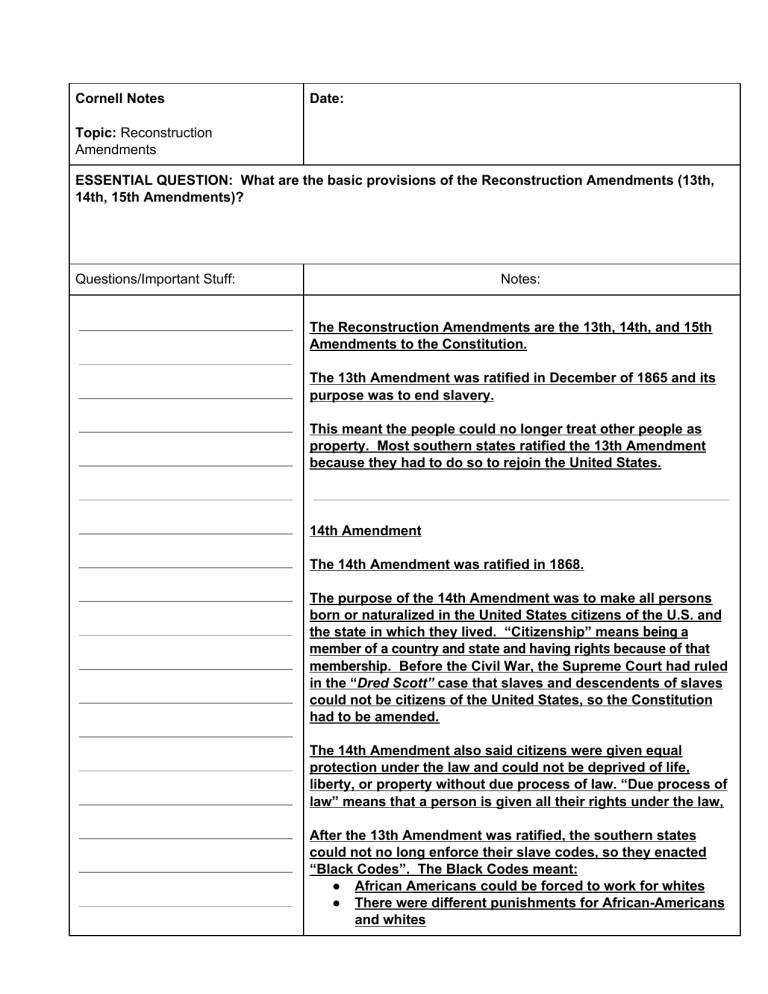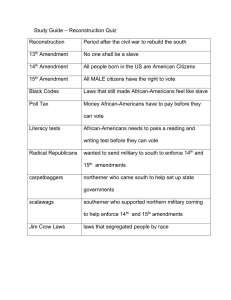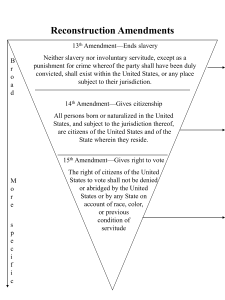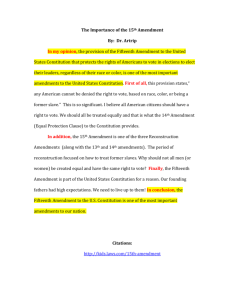Cornell Style Notes for Reconstruction Amendments (13th, 14th, 15th)
advertisement

Cornell Notes Date: Topic: Reconstruction Amendments ESSENTIAL QUESTION: What are the basic provisions of the Reconstruction Amendments (13th, 14th, 15th Amendments)? Questions/Important Stuff: Notes: The Reconstruction Amendments are the 13th, 14th, and 15th Amendments to the Constitution. The 13th Amendment was ratified in December of 1865 and its purpose was to end slavery. This meant the people could no longer treat other people as property. Most southern states ratified the 13th Amendment because they had to do so to rejoin the United States. 14th Amendment The 14th Amendment was ratified in 1868. The purpose of the 14th Amendment was to make all persons born or naturalized in the United States citizens of the U.S. and the state in which they lived. “Citizenship” means being a member of a country and state and having rights because of that membership. Before the Civil War, the Supreme Court had ruled in the “Dred Scott” case that slaves and descendents of slaves could not be citizens of the United States, so the Constitution had to be amended. The 14th Amendment also said citizens were given equal protection under the law and could not be deprived of life, liberty, or property without due process of law. “Due process of law” means that a person is given all their rights under the law, After the 13th Amendment was ratified, the southern states could not no long enforce their slave codes, so they enacted “Black Codes”. The Black Codes meant: ● African Americans could be forced to work for whites ● There were different punishments for African-Americans and whites ● African-Americans were restricted in where they could live Congress passed the Civil Rights Act of 1866 (over President Johnson’s veto) to overturn the Black Codes, but many were concerned that the Supreme Court would find the Act unconstitutional. The 14th Amendment was necessary to prevent this. Native Americans did not become citizens because they were considered “sovereign nations” and thus not part of the United States. 15th Amendment: 15th Amendment was ratified in 1870. It said the states could not deny any citizen the right to vote because of race or color, or previous involuntary servitude. The Civil Rights Act of 1866 and the 14th Amendment did not address the right to vote. The Radical Republicans felt that another Amendment was necessary to protect the rights of “citizens” to vote. Native Americans were not citizens, they did not get the right to vote. Because the 15th Amendment did not address denial of the right to vote based upon gender (male or female), it did not give women the right to vote.



